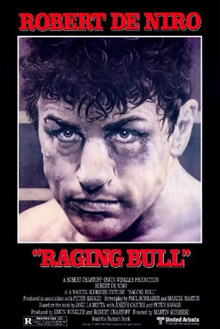A blog formerly known as Bookishness / By Charles Matthews
"Dazzled by so many and such marvelous inventions, the people of Macondo ... became indignant over the living images that the prosperous merchant Bruno Crespi projected in the theater with the lion-head ticket windows, for a character who had died and was buried in one film and for whose misfortune tears had been shed would reappear alive and transformed into an Arab in the next one. The audience, who had paid two cents apiece to share the difficulties of the actors, would not tolerate that outlandish fraud and they broke up the seats. The mayor, at the urging of Bruno Crespi, explained in a proclamation that the cinema was a machine of illusions that did not merit the emotional outbursts of the audience. With that discouraging explanation many ... decided not to return to the movies, considering that they already had too many troubles of their own to weep over the acted-out misfortunes of imaginary beings."--Gabriel García Márquez, One Hundred Years of Solitude
Search This Blog
Monday, November 30, 2015
Raging Bull (Martin Scorsese, 1980)
Some people think this is a great film. The American Film Institute in 2007 ranked Raging Bull No. 4 in its list of 100 best American movies, behind Citizen Kane (Orson Welles, 1941), The Godfather (Francis Ford Coppola, 1972), and Casablanca (Michael Curtiz, 1942). It is certainly an accomplished film: Michael Chapman's cinematography uses black and white in ways that hadn't been seen since color came to dominate filmmaking in the 1950s; Scorsese and his joined-at-the-hip editor, Thelma Schoonmaker, accomplish wonders, especially with the fight sequences and the occasional eruptions of violence; the set decoration by Phil Abramson, Frederic C. Weiler, and Carl Biddiscombe evokes the shabby milieu and its changes over the decades convincingly; and the performances of then-unknowns Joe Pesci and Cathy Moriarty made them into overnight sensations. And then there's what even I will accept as Robert De Niro's greatest performance, which won him a best actor Oscar. The film critic Mick LaSalle likes to categorize Oscar acting nominations as either "transformations" or "apotheoses." In the former, actors create new images for themselves, while in the latter, they simply take their existing images and raise them to newly vivid heights. But in Raging Bull De Niro does both: He transforms himself into both the self-destructive young boxer Jake LaMotta and the bloated older LaMotta, living on his long-ago laurels, but he also brings something new and more intense to the existing image of De Niro as a fiercely inward actor. For these reasons, I think, the film makes many lists of the greatest films of all time. So why does it leave me cold? Why, among the Scorsese and De Niro collaborations, do I prefer Mean Streets (1973), Taxi Driver (1976), and Goodfellas (1990)? Is it that Mean Streets is more varied and colorful, Taxi Driver more probing in its exploration of psychosis, and Goodfellas smarter and wittier? Could it be that Raging Bull lacks texture, depth, and humor? Is it that Jake LaMotta is one of the most unsympathetic figures to receive a biopic treatment, or is it that Scorsese was never able to find a multi-sided personality in the screenplays credited to Paul Schrader and Mardik Martin that were worked over by both Scorsese and De Niro? In another American Film Institute ranking, Raging Bull was proclaimed the best sports movie of all time. But Scorsese has said that he doesn't care for sports in general and boxing in particular, and I think it shows. His movie is about the brutality of boxing, not about the sport that involves both offense and defense, and requires not only a well-honed skill but also intelligence -- or if not that, at least a greatly developed cunning. There is nothing of that in his portrayal of LaMotta. The movie's reputation, therefore, remains something of an enigma to me.
